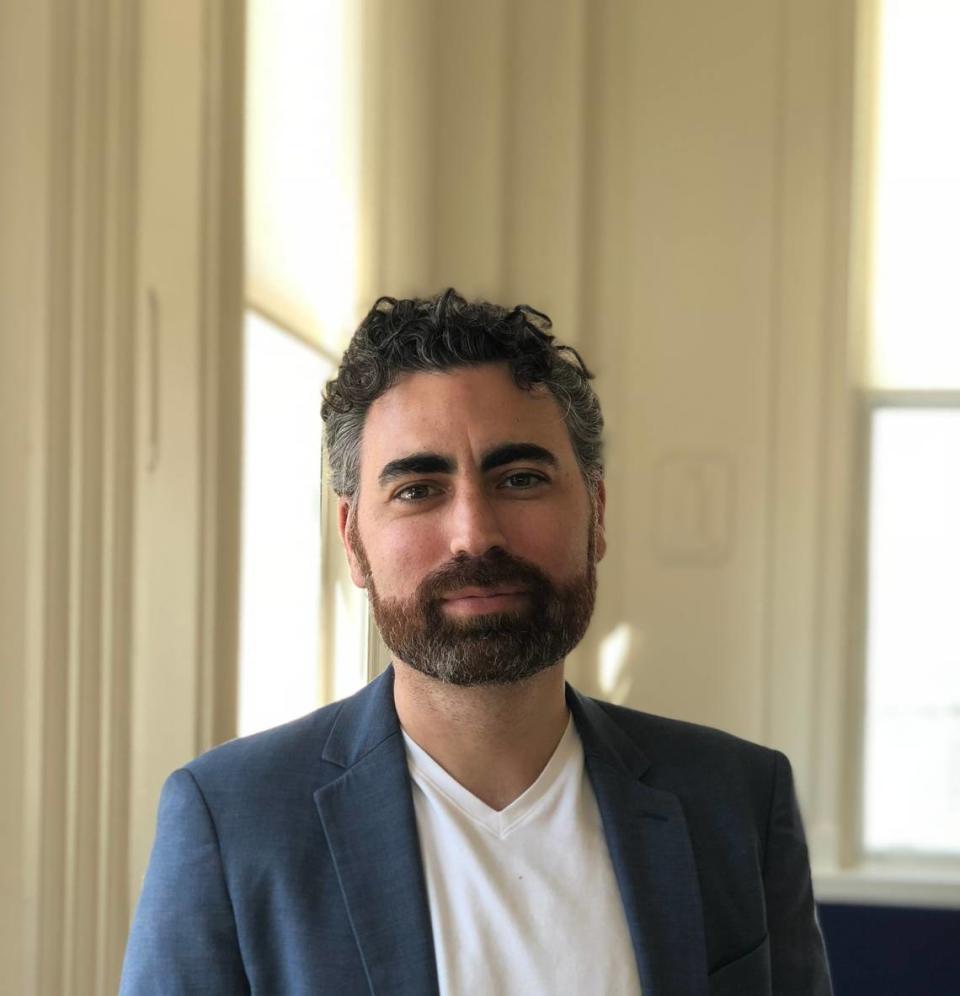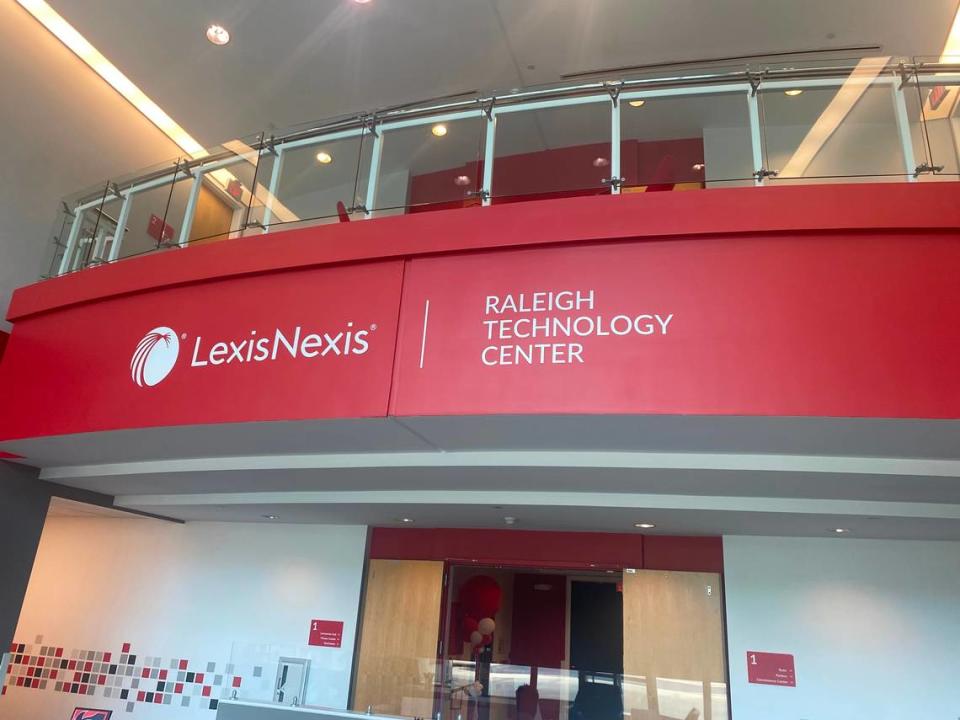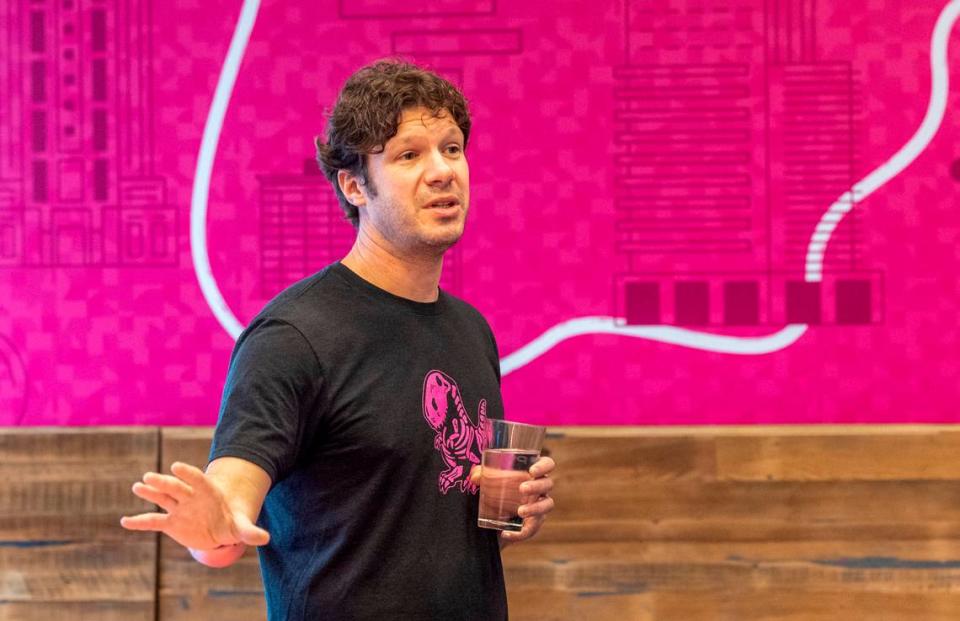‘Like magic.’ More Raleigh firms embrace ChatGPT breakthroughs to boost AI offerings
Last winter, Jesse Lipson was among the million to test out ChatGPT, a large language model that rapidly responds to prompts with typed-out answers that are novel, lengthy, thorough and usually correct.
Launched in November by the company OpenAI, ChatGPT marked a major breakthrough in a category of artificial intelligence called generative AI, which produces text, sounds, images and data analyses that didn’t previously exist. Many explored the program as a neat trick, a viral technology that possessed immense — if still undefined — potential. But for Lipson, the promise of generative AI felt like a near-term reality.
Lipson is the founder and CEO of Levitate, a Raleigh marketing software firm that helps small companies keep in touch with clients through email and social media.
A serial tech entrepreneur who founded and sold the successful cloud storage firm ShareFile, Lipson formed Levitate in 2017 with artificial intelligence squarely on his mind. When he registered Levitate’s website, he picked a domain address that ended not in .com but in .ai.
But it wasn’t until a few months ago, he said, that the leading generative AI technology felt reliable enough to incorporate commercially.

In April, Levitate introduced its ChatGPT-backed services. Users can feed the program writing instructions, like “Draft a thank you note to Marta,” and watch as a never-before-seen message of gratitude materializes in seconds. Tailored responses are offered by toggling among various text lengths and personality options (formal, informal and humorous). Customers can then edit what the AI ghostwriter produces.
“By far the fastest uptake of any feature that we released,” Lipson said. “To (our customers), it’s like magic.”
AI for lawyers
Across the Triangle, businesses have jumped on the latest generative AI advances.
Fellow Raleigh software firm Pendo unveiled its artificial intelligence platform last month. Diveplane, a Triangle company that promotes more ethical uses of AI, itself uses artificial intelligence to write certain boilerplate code.
And in May, the legal research database LexisNexis, which runs its global technology operations at North Carolina State University’s Centennial Campus, began piloting its generative AI platform to 10 global law firms.
“Lawyers, in particular, generate lots of documents and lots of text,” said Jeffrey Pfeifer, chief product officer and Raleigh site leader for LexisNexis. “We see tremendous opportunity for the technology to drive improvements in the way lawyers work, the way they draft documents and the way they search for information about legal questions.”
Attorneys, Pfeifer explained, can use AI to write documents, converse on legal searches, and summarize dense legal documents.

While ChatGPT hasn’t been foolproof in the legal field — in June, New York lawyers were chided for citing fake cases created by the model — Pfeifer assured the proprietary LexisNexis AI model only culls from the company’s verified database. He noted the program, underpinned in party by ChatGPT, offers reference citations to the answers it provides.
ChatGPT is the most famous of the large language models, which generate their answers from vast troves of information. Machine learning then orders the responses in a proper sequence. While it all may seem human-like during conversation, the AI is simply using predictive modeling to determine its next word.
When the response is wrong, it intakes user feedback to improve accuracy.
“As you train it, it makes all of your models smarter,” said Todd Olson, CEO and cofounder of Pendo.
Distilling a ‘corpus of knowledge’
In January, Microsoft invested $10 billion into OpenAI. In March, Google introduced its generative AI platform, Bard, which Pendo also uses. Headquartered in downtown Raleigh, Pendo helps companies understand how their clients and employees engage with software.
“We have a corpus of knowledge of how people use software,” Olson said. “One of the biggest obstacles is how to distill the info to actionable steps.”
Enterprise artificial intelligence differs from what individuals can access for free online. Paid versions of ChatGPT are more advanced, bespoke, and can keep data private rather than using the information to retrain the broader language model.

As generative AI enters the corporate world, some stress the importance of proper model instruction. Founded in 2018, the Raleigh startup Diveplane advocates for explainable artificial intelligence, models that permit humans to understand how the results came to be.
“What AI allows us to do is scale decisions, scale information, and it can affect more and more people, more easily, more efficiently,” said Chris Hazard, cofounder and chief technology officer at Diveplane. “It can cause a lot of harm that way. Understanding the whys can make it easier to do the right thing.”
Business applications are poised to multiply as the technology progresses. In March, OpenAI released a new version called GPT-4, with advanced capabilities. Then this summer, the company released Code Interpreter, which allows users to upload files like Excel spreadsheets and create charts or solve math problems based on the data.
For Lipson, who is relatively well versed in the powers of generative AI, new products like Code Interpreter have left him awestruck.
“That feels pretty magical,” he said.
Open Source
Do you enjoy Triangle tech news? Subscribe to Open Source, The News & Observer's weekly technology newsletter and look for it in your inbox every Friday morning. Sign up here.

